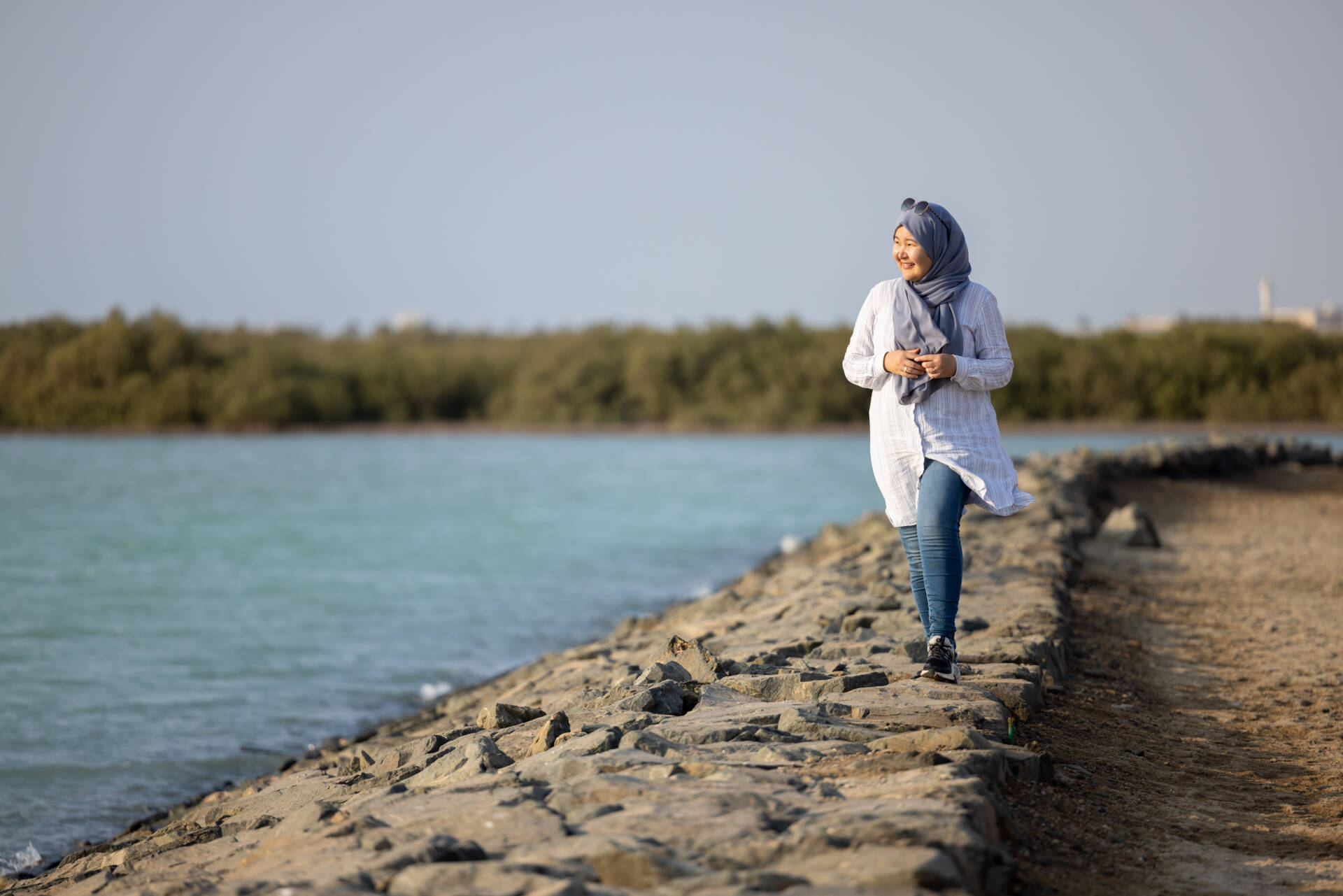Aigerim Rakhmatulina, a biologist at KAUST, thinks that many young women are hesitant about a career in science. To address this, she is using Instagram to show what lab life is really like and to inspire young women to forge their own paths in academia.
Rakhmatulina completed a master’s in plant science at KAUST, but she changed track to pursue a Ph.D. in bioscience, combining her interests in microscopy and cell imaging. In Satoshi Habuchi’s lab, Rakhmatulina and her colleagues are developing experimental procedures for imaging stem cells so that scientists can improve stem cell transplants for patients with blood disorders, leukemia and cancer.
Having been in academia for 12 years, including time abroad, Rakhmatulina knows that her position is unusual. “In many cases, women have to choose between building a family or a career,” she says. “I’ve got all this experience behind me and thought that someone would be interested in my journey. I want to show everyone that it can be done.”
“I’ve got all this experience behind me and thought that someone would be interested in my journey.”
Rakhmatulina first decided to share her Ph.D. journey on Instagram back in 2020 but was wary of cyberbullying or receiving inappropriate messages. She finally plucked up the courage in 2022 to open her account @aikerimr, with the enthusiastic support of her husband, and has been using pictures and videos with commentary, music and captions to share lighthearted yet informative insights into lab life.
By showing people what happens behind closed doors, Rakhmatulina is making research less intimidating. “I want to show you don’t have to be an A student to do a Ph.D.,” she says. “Girls especially feel we have to hit all the criteria before we hit the apply button, so I want to show people that if I can do it, they can too.”
Her posts also help show people who have never been in a lab before what to look for, including potential red flags. Without the help of academic consultants, students often find their Ph.D. journey hard to navigate, so Rakhmatulina hopes that her videos can provide some guidance.
Rakhmatulina’s passion for teaching shines through on her Instagram posts, which cover everything from lab techniques to structuring a thesis. “Being able to dissect complex information and feed it to the general public is a really important skill,” Rakhmatulina says. Without an undergraduate school nearby, Ph.D. candidates at KAUST do not get to teach, so Rakhmatulina found her own way to share her knowledge in playful yet informative ways.
Rakhmatulina’s content was popular right from the start and instantly resonated with fellow researchers. “People often think they’re the only one with a particular issue,” she adds. “I’m just trying to say you’re not alone.”
“Students face many challenges throughout their Ph.D. journey, but they can learn important skills along the way, such as logical thinking and science communication,” says Satoshi Habuchi, Rakhmatulina’s supervisor. “Aigerim stood out as an excellent communicator from the moment she joined my lab,” he says. “By sharing her achievements and challenges on social media, she can reach young women and minorities around the world and inspire them to pursue a career in science,” he adds.
A social media presence helps you to get noticed, but it also requires discipline because regular posting is essential to remain visible among millions of Instagram users. “Projects like this speak louder than a CV or resumé,” Rakhmatulina says. “I’m constantly noting down ideas for future videos,” she says, revealing that “time management” or “what do you do on your day off?” could be next. However, with so much content online, it is a challenge to make a reader stop scrolling. “It’s a chance to be creative to catch the attention of my audience,” she adds. “Sometimes it’s educational, and sometimes it’s fun.”
Rakhmatulina’s Instagram has attracted high school students considering academia. “I receive a lot of DMs from girls seeking advice,” she says. “I can tell they have so much passion but are clearly afraid of stepping into this world.” After chatting with Rakhmatulina, most of the girls who reached out to her have a clearer idea of what they want to do, and it is not always academia. “People fantasize about wearing a lab coat, producing results and publishing papers. So I bring them back to reality. Graduate life is not for everyone,” she says, “and whenever I feel overwhelmed or anxious, I tell myself to take one step at a time. Don’t leap!”
“After chatting with Rakhmatulina, most of the girls who reached out to her have a clearer idea of what they want to do, and it is not always academia.”
There is a lot to consider in pursuing academia: the country, the lab, the project. “What I say to everyone is to come and try it first. It is a very welcoming and diverse environment here at KAUST. They are supportive of new ideas, have amazing facilities and funding that is open to everyone,” adds Rakhmatulina.
After completing her Ph.D., Rakhmatulina would like to do more of what she enjoys — science communication through content creation. “I’d like to expand into YouTube and maybe have my own website,” she says, “but I’m taking it step by step!”

